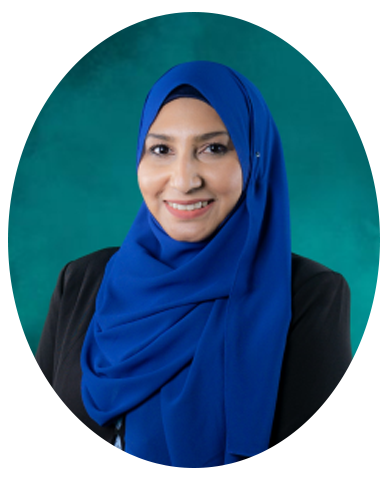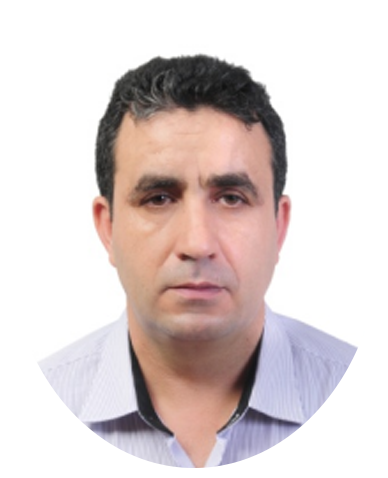
(I3ME2024)

Prof. Mazlina Abdul Majid
IEEE Senior Member
Faculty of Computing, Universiti Malaysia Pahang,Malaysia
BIO: Dr. Mazlina is a distinguished Professor at Universiti Malaysia Pahang Al-Sultan Abdullah (UMPSA), Malaysia, with over two decades of experience in academia. She earned her PhD in Computer Science from the University of Nottingham, UK. Dr. Mazlina holds various administrative responsibilities, including serving as Deputy Dean of Research and Graduate Studies and Head of the Software Engineering Research Group. Currently, she serves as the Editor-in-chief for the International Journal of Software Engineering and Computer Systems (IJSECS), Head of the Green Technology Research Lab, and Head of the Data Science and Simulation Research Group. Additionally, she is recognized as an IEEE Senior Member and Professional Technologist by the Malaysia Board of Technologies. Dr. Mazlina obtained a Professional Certificate from the Malaysia Software Testing Board and is a Certified Green Data Centre Professional.
Dr. Mazlina has made significant contributions to UMPSA and is a member of the academic program committees at UMPSA and other universities, thanks to her extensive experience in postgraduate and undergraduate management. She is the founder of the International Journal of Software Engineering and Computer Systems (IJSECS), the International Competition and Exhibition on Computing Innovation (ICECinno), and the Green Technology Research Lab. Her research work primarily focuses on Green Technology Operations using Simulation Modeling. With more than 150 publications and numerous awards, Dr. Mazlina's excellence in academics and research is recognized both locally and internationally.
Title: Green IoT Innovation: The Role of Simulation in Reducing Environmental Impact
Abstract: As we navigate the Industrial Revolution 4.0, the Internet of Things (IoT) plays a crucial role in developing smart, interconnected systems that drive efficiency and innovation. However, the sustainability of these systems remains a pressing concern, particularly regarding energy consumption and environmental impact. This presentation explores the importance of simulation in enhancing prediction accuracy and optimizing green IoT systems. It examines how simulation can model complex IoT environments, allowing for a deeper understanding of system behavior and performance under various conditions. By simulating IoT networks, we can better predict energy usage, optimize resource allocation, and identify strategies to reduce the carbon footprint of IoT deployments. The discussion will also highlight how simulation aids in developing sustainable IoT solutions that balance performance with environmental responsibility, essential for applications in smart cities, industrial automation, and beyond. This session aims to provide insights into how simulation-based approaches can support the creation of green, efficient, and resilient IoT systems, driving sustainable innovation in the IoT landscape.

Prof. Yajun Liu
South China University of Technology
BIO: Yajun Liu, South China University of Technology, Professor, Ph. He is a member of the American Society of Mechanical Engineers (ASME), a member of the Society of Automotive Engineers (SAE), a senior member of the Chinese Society of Mechanical Engineering, a member of the Manufacturing Technology Committee of the Chinese Society of Automation, and a technical advisor to many industry-leading companies. Long-term commitment to mechanical system signal testing, analysis, characterization, control and performance optimization; manufacturing process mechanism and optimization control technology intelligent manufacturing process equipment and other aspects of research. He has presided over more than 10 national, provincial and ministerial projects, and more than 30 R&D projects commissioned by enterprises. He has presided over more than 10 teaching and research projects, and received more than 10 teaching awards.
Title: Hydraulic pile hammer surrogate model based on physics-informed neural network
Abstract: Hydraulic pile hammer is widely used in the construction of cross-sea bridge, deepwater wharf, offshore wind power and gas platform. The working principle of pile hammer is to use hydraulic power to lift the hammer head to a certain height, and accelerate the hammer head's fall through oil discharge or reverse oil supply, thus generating a large impact force to drive the pile into the foundation. Choosing appropriate control parameters for hydraulic pile hammer to improve the energy conversion efficiency of the hydraulic system is an important research topic in the field of pile hammers. In order to improve the energy conversion rate of the hydraulic system in pile hammers, this presentaion proposes a control parameter matching scheme for hydraulic pile hammer construction based on surrogate model and transfer model.

Prof. Shahid Hussain
Jiangsu University, China
BIO: Prof. Shahid Hussain is currently working as a professor (Full) at School of Materials Science and Engineering, Jiangsu University, China. He completed his Ph.D. degree at Chongqing University, in 2015, after starting a Post-Doctoral research fellowship from 2015 to 2017. He joined Jiangsu University as Associate Professor in July 2017 and based on his outstanding achievements and experiences, he was promoted to Full Professor in July 2020 and was also approved by the state Govt of China. Dr. Shahid Hussain and the project team has executed a lot of work in the field of metal oxide, sulfides, MXenes and MOF nanomaterials based applications in gas sensors, supercapacitors and LiS Batteries. He has published high-quality research articles, and also has a wealth of experience, which laid a solid foundation for the project related research. Dr. Shahid Hussain has excellent working experience on gas sensors and has been working on sensor device fabrication since 2011. He has published more than 256 journal research articles indexed by SCI with H-index 46 in Google Scholar with 6450 citations including Nano Energy, Chemical Engineering Journal, Journal of Hazardous Materials, Applied Materials & Interfaces, Journal of Materials Chemistry A, Sensors and Actuators B, Chemosphere, Inorganic Chemistry, Journal of Cleaner Production, Applied Surface Science, Electrochemica Acta, Materials Science and Engineering, etc. He is also working as an Editor for 18 journals indexed by SCI (Elsevier, Springer, Frontiers, Hindawi, American Scientific Publishers, and MDPI).
Title: Low-Temperature Gas-Sensing System Based on Metal–Organic Framework-Derived In2O3 Structures and Advanced Machine Learning Techniques
Abstract: In the bustling metropolis of tomorrow, where pollution levels are a constant concern, a team of innovative researchers embarked on a quest to revolutionize air quality monitoring. In pursuit of this objective, this study embarked on the synthesis of indium oxide materials via a straightforward solvothermal method purposely for gas detection. Through meticulous analysis of their gas-sensing capabilities, a remarkable discovery came to light. Moreover, machine learning techniques were utilized to predict the response characteristics of the sensing materials to various environmental conditions, concentrations of target gases, and operational parameters. This predictive capability can guide the design of more efficient and robust gas sensors, ultimately contributing to improved safety and environmental monitoring. As the demand for efficient, portable, and eco-friendly electronics continues to grow, these findings contribute to the development of sustainable and high-performance materials that can meet the needs of modern technology.

Prof. Rachid MASROUR
Sidi Mohamed Ben Abdellah University, Morocco
BIO: Professor Rachid Masrour is a distinguished research professor in the Faculty of Sciences Dhar El Mahraz at Sidi Mohamed Ben Abdellah University, Fez, Morocco. He obtained his Ph.D. from the same university in March 2006. With a strong focus on Condensed Matter Physics, Material Sciences, Material for Energy, and Magnetism, he has made significant contributions to these fields. Professor Rachid Masrour has an impressive publication record, including 322 articles published in Web of Science and 10 book chapters in esteemed international journals. He has also authored two books. His outstanding scholarly achievements are reflected in his h-index of 37. He actively participates in numerous Moroccan and international congresses, sharing his expertise and fostering collaborations with laboratories worldwide. Recognized for his impactful research, Professor Rachid Masrour has received prestigious accolades. Notably, he was honored with the International Association of Advanced Materials Young Scientist Medal for his remarkable contributions to "Magnetism, Electromagnetism, and Spintronics" and delivered a lecture at the Advanced Materials World Congress in October 2022. He is also acknowledged as one of the world's most cited scientists in material physics, ranking among the top 2% according to Stanford University in 2020. In addition to his research achievements, Professor Rachid Masrour serves as a referee for several articles and holds editorial board memberships in various international journals. He has garnered recognition for his oral presentation, receiving the Best Oral Presentation Award at MCGPD-2021 from the Indian Association for Crystal Growth and the Indian Science and Technology Association International Organization for Crystal Growth in July 2021. Moreover, he was honored with the Outstanding Scientist Award by the VDGOOD Professional Association in India on February 15, 2020. Elsevier also acknowledged his work as one of the most critical contributions in 2020.